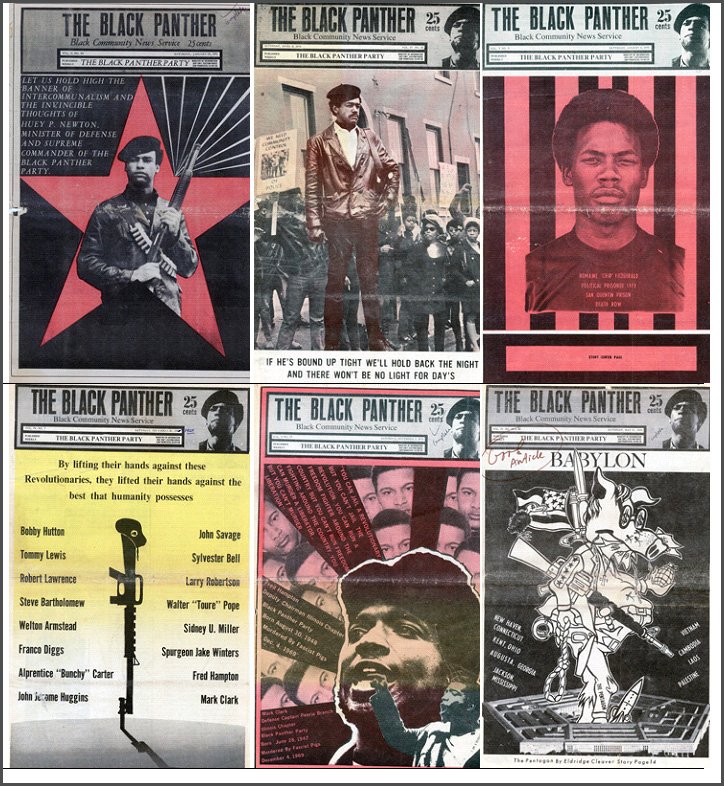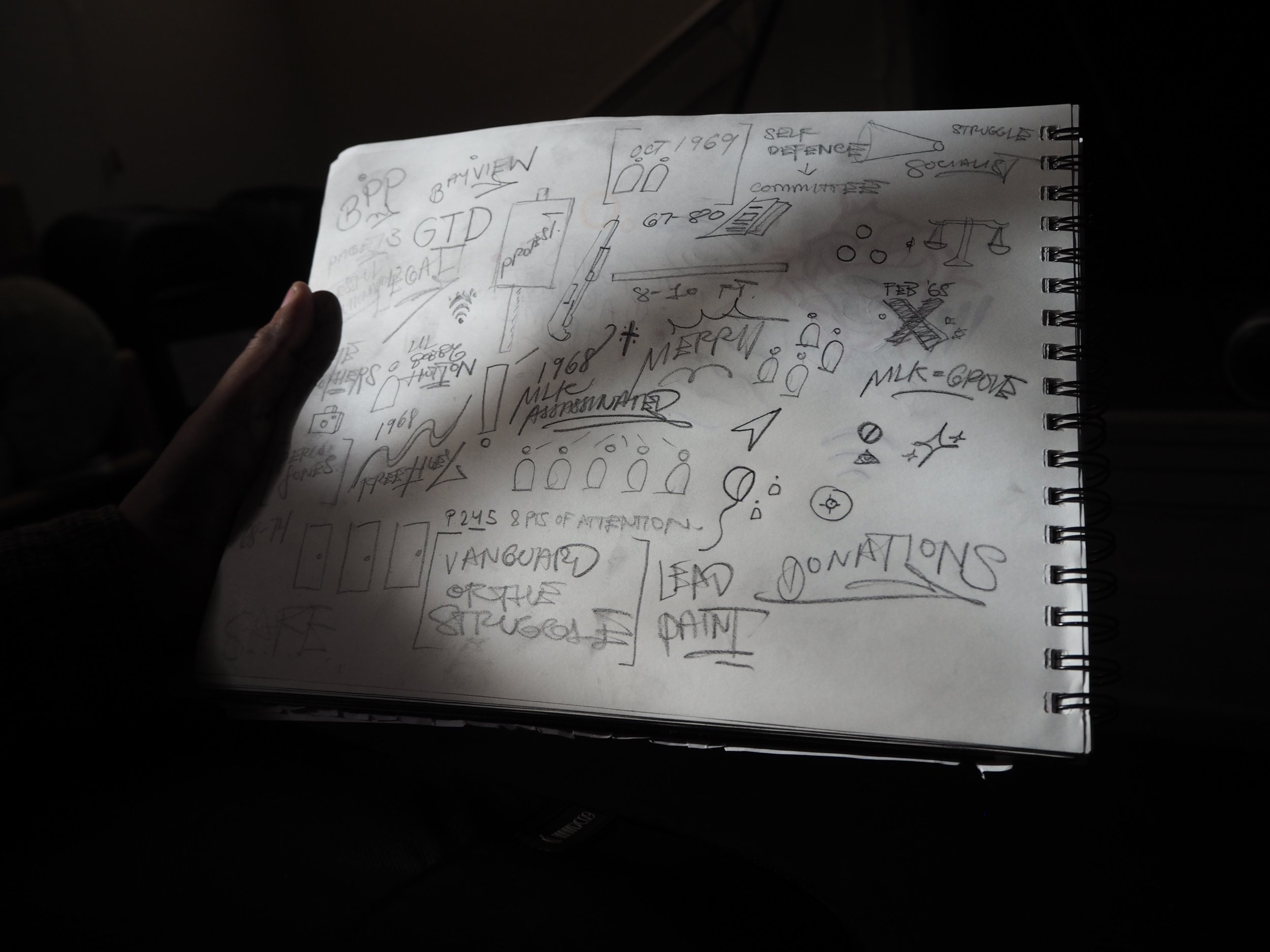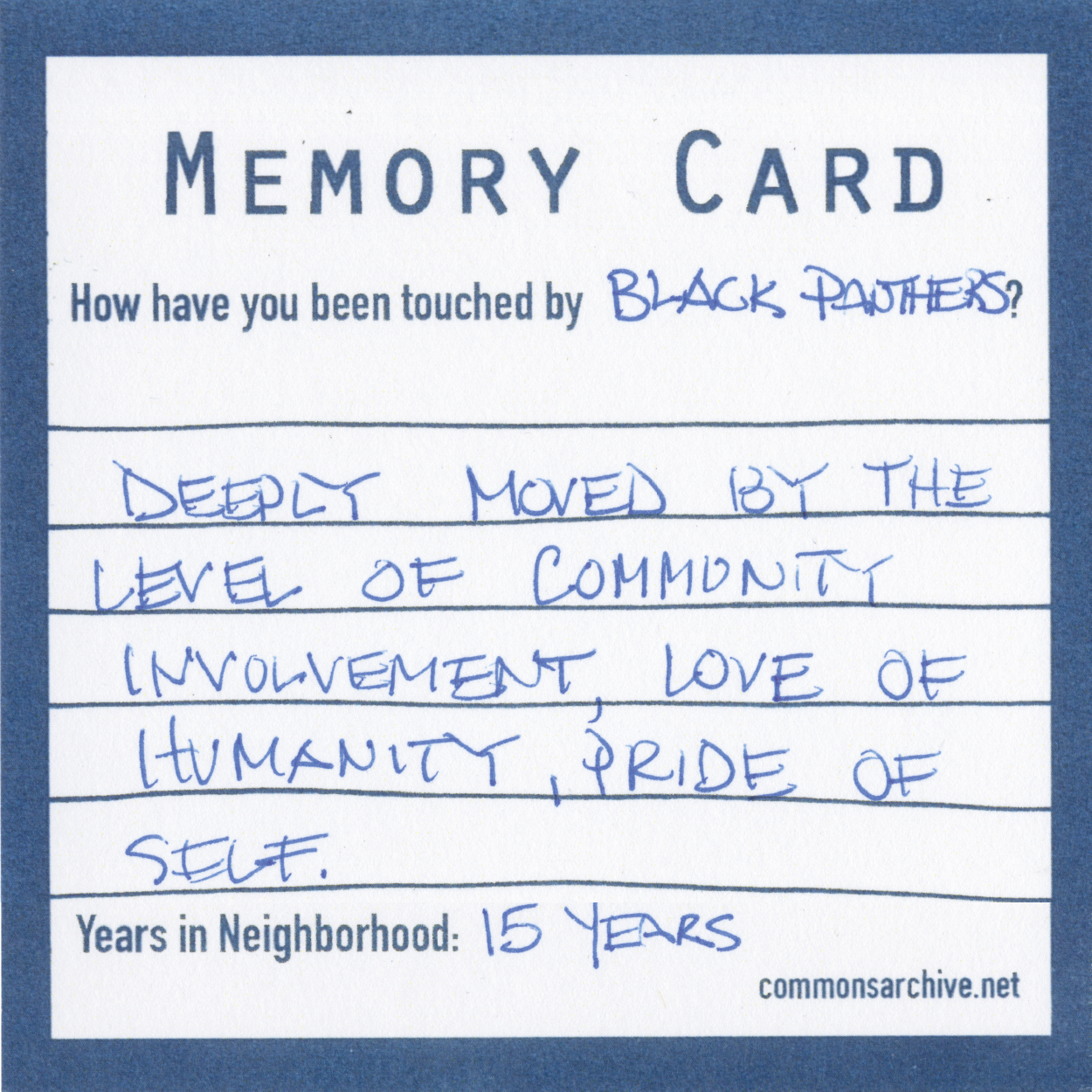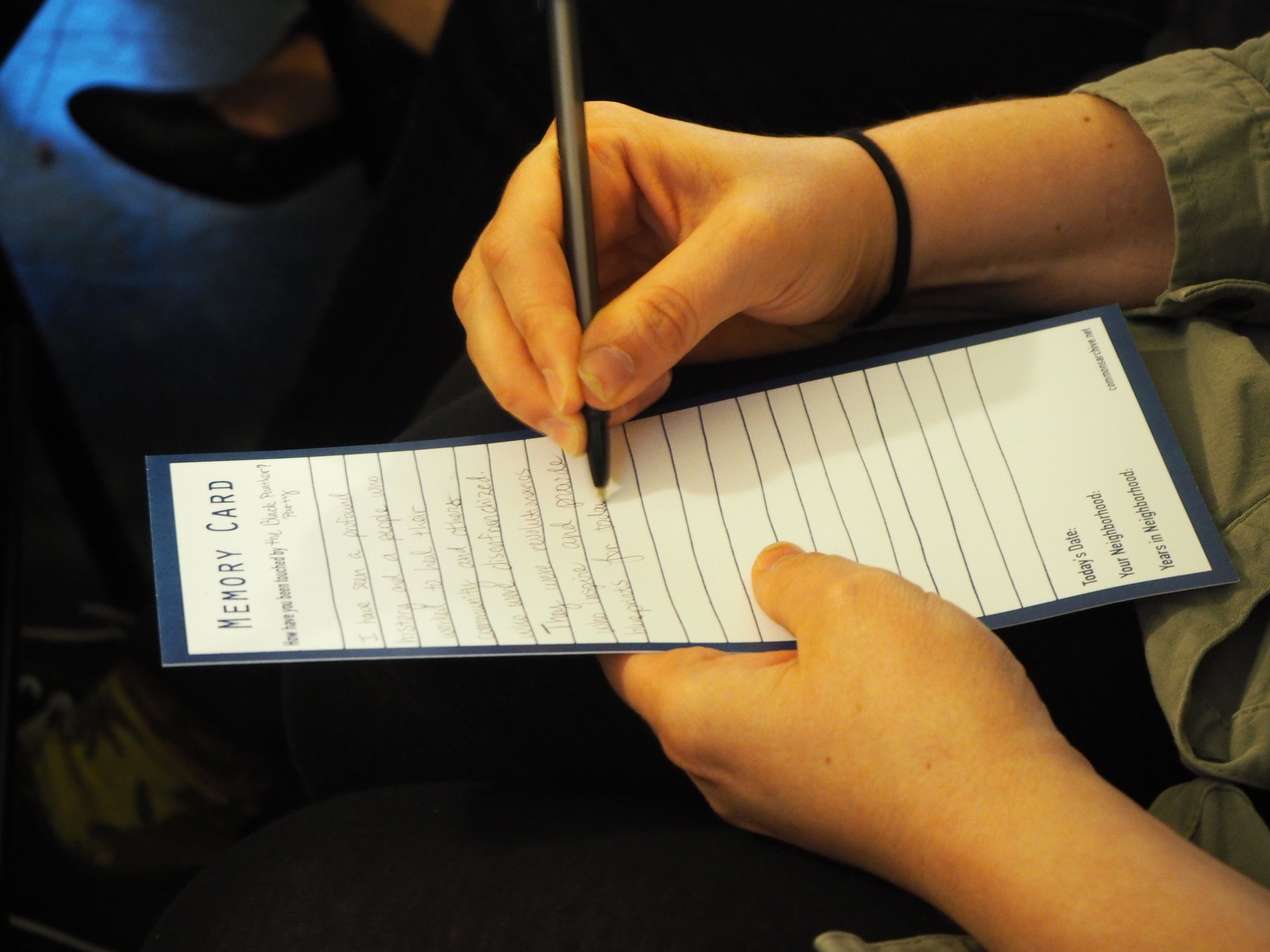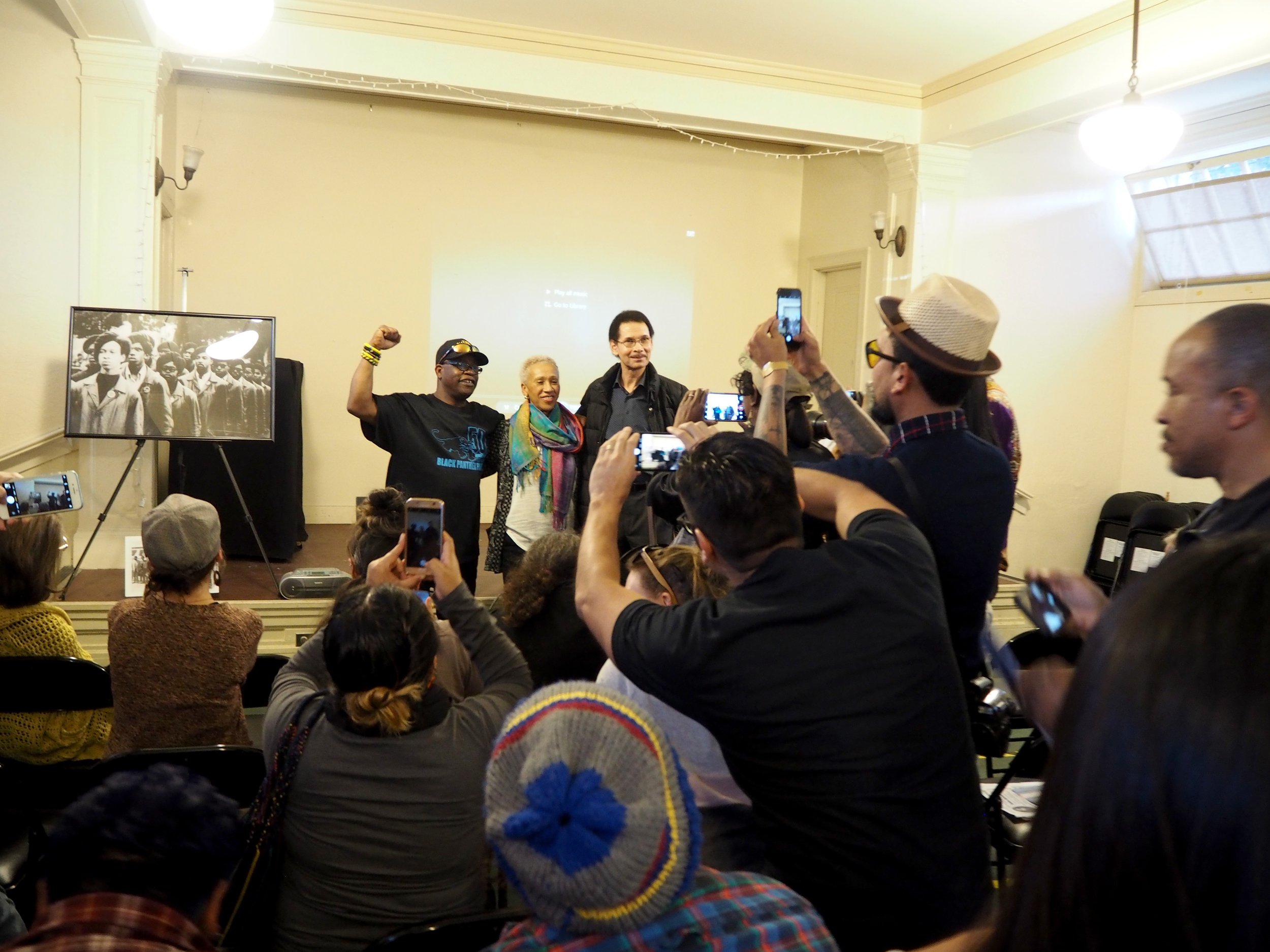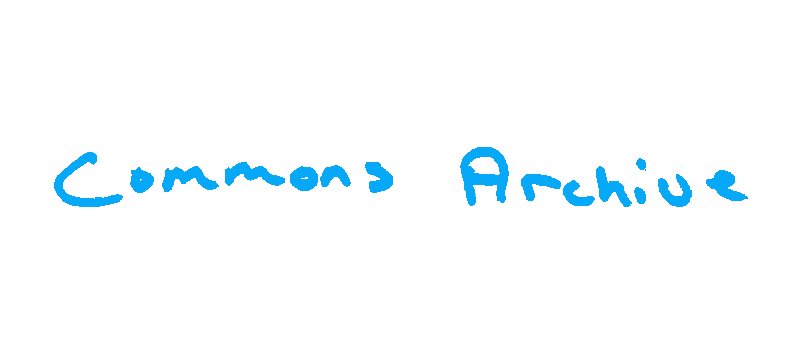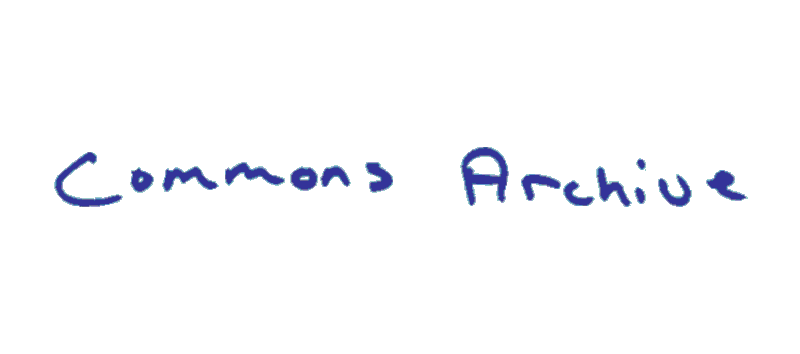BLACK PANTHER PARTY HISTORY WORKSHOP
Saturday, February 18, 2018
"My job is to educate people about the true legacy of the BPP."
Commons Archive invited Billy X Jennings, de facto Black Panther Party archivist and historian, to talk about the Party’s accomplishments. The event’s standing-room-only crowd revealed the community’s hunger for Black Panther history. "It’s About Time," the digital collection makes BJ's impeccably organized physical archive of 'The Black Panther' newspapers and other ephemera on the Panthers available to all. Since North Oakland is the birthplace of the Black Panther Party, the Golden Gate Library, which had been a meeting ground for the Party, was an ideal site for this information-rich presentation.
"A Right to Change a Mean-Spirited System"
A lifelong collector of comics, stamps, records, and butterflies, Jennings started developing his Black Panther newspaper archive for the Panther’s 30-year reunion in 1995. After this gathering, members donated their own collections to Jennings.
Like the North Oakland storefront museums where the East Bay Negro Historical Society shared Black history, Jennings makes BPP history accessible. While the materials he cares for are invaluable, they are not precious. BJ’s Black Panther Party history installations meet the community where they are. He sets up accessible installations at libraries, rec centers, senior centers and community events. Jennings invites us to experience BPP history by sharing first hand-memories, photos, ephemera, and lessons from his Panther experiences.
When we learn about history 'in an honest way', truth is our weapon. Stories about the Panther's survival programs and radical community care are not widely known. More often, harmful narratives present the Panthers as a dangerous group of armed radicals. By listening to original BPP members, as well as documenting the stories of their impact on our community, we learn the true history of the Party. BJ's life mission is to educate the community about the tremendous impact of the Panther's survival programs.
Messages Through Images.
'The Black Panther' newspaper used powerful graphic illustrations to share the Panthers' trailblazing social programs and community building strategies. Gayle Asali Dickson, an artist and activist who joined the Black Panthers in 1968, spoke about her work with Emory Douglas on the newspaper from 1972-1974.
Designed to make the most of inexpensive printing technologies, her dynamic illustrations of Panther social programs used thick black lines, tactile textures, and bright colors. Her accessible imagery illustrated the oppressions that made revolution necessary. She illustrated what 'survival pending revolution' looked like–support by the community for communities that have been systematically neglected. Her drawings of the Party feeding people, registering them to vote, and making sure that seniors had safe routes when paying their bills were a tool for liberation and a call to revolution.
'The Black Panther' newspaper was also an economic support system for rank-and-file members: each issue was sold for 25 cents and sellers kept 10 cents. "For Black Panther Party members who were not working, who had been kicked out of the house, who had no place to stay, if you sell 100 newspapers, you have $10 in your hand," says BJ. Beyond a source of income, the newspaper was also an effective recruitment method that spread the Party's message and encouraged new people, like Jennings, to join.
"How have you been touched by the Black Panther Party?"
This workshop was the first time Commons Archive used memory cards, printed using experiments with cyanotype at Kala, to document neighbor stories. We gathered nearly 60 stories from attendees who responded to the prompt: "How have you been touched by the Black Panther Party?"
Some neighbors described ways the Black Panthers have inspired their own activism; others reflected on how deeply moved they were by the Panthers' community care. After learning from BJ about the Panther's legacy social programs, such as free school lunches, many expressed that they now see how they had personally benefited from these survival programs in their youth.
“I was blessed by the Black Panther Party”
“As a kid who immigrated from the Philippines and grew up in Alameda and Oakland, I was blessed to have not only reaped the benefits of the Panthers (i.e. school lunches) but also have been taught about the Party in an honest way.”
“Its ideologies are still so inspiring. I have hope that the foundation they provided gives us as the next generation a stepping stone to the Revolution.”
